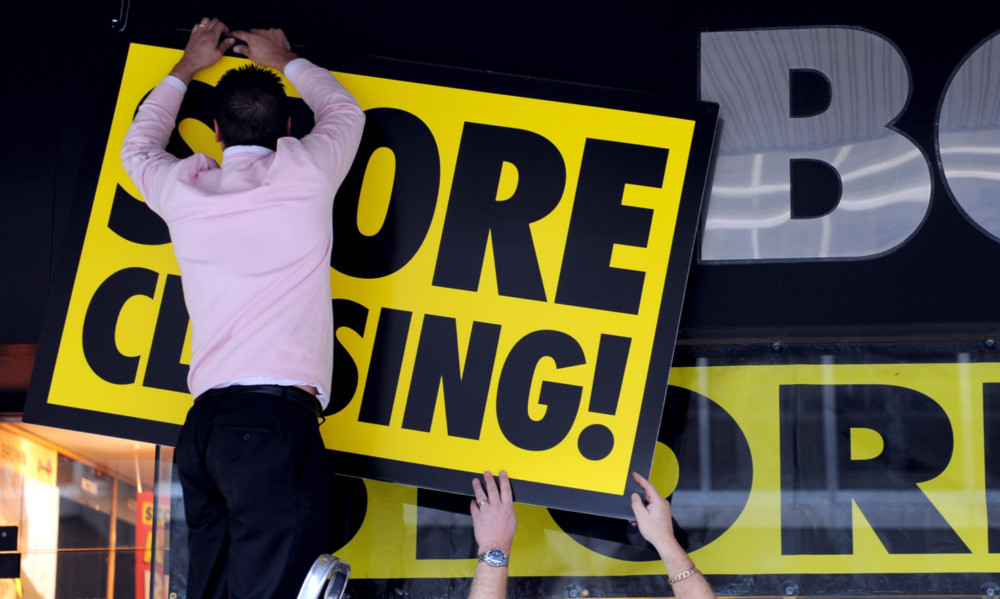Far fewer companies went to the wall during the early part of this year, new statistics have shown but there are fears that many are simply treading water.
Figures from the Scottish Government-backed Accountant in Bankruptcy showed corporate insolvencies fell 63% during the first quarter, compared with the same period 12 months ago.
But restructuring specialists warned that, despite an apparently “startling turnaround”, the real test would come when interest rates begin to rise once again.
The news came as the UK economy was last night poised to see if it had escaped a second quarter of negative growth and a third recession in quick succession during the first three months of the year.
Bryan Jackson, business restructuring partner with BDO, said the statistics did not necessarily demonstrate an economic recovery, and feared that many more casualties may be on the cards.
“This may indicate that we have turned a corner in terms of economic recovery, or it may simply show that there has been a peak in the number of individuals using the bankruptcy process as a means of dealing with their indebtedness,” he said.
“Faced with static wage levels, rising food, fuel and utility costs, it is highly likely that this may simply be the calm before the storm, particularly given the stubbornly flat economic performance.”
John Reid, head of restructuring services at professional services firm Deloitte, said: “Despite some tentative signs of a gradual recovery, or at least some respite from further deterioration, there remains a large number of companies which are currently able to tread water thanks to continued low interest rates.”
He added: “These businesses have a closing window of opportunity, and once things start moving again many of them will be vulnerable to even modest rises in interest rates.
“That will bring with it an increased risk of failures if these companies are not able to turn the corner in the meantime.”
Meanwhile, Begbies Traynor’s quarterly ‘Red Flag’ alert showed levels of business critical distress fell 50% in Scotland over the same quarter.
Group managing partner in Scotland Ken Pattullo said the business economy was “starting to pick up” despite a drought of funding for SMEs.
“The largest influencers on the levels of critical business distress are creditor forbearance, access to funding and HMRC actions, and these have changed over recent years,” he said.
“Put simply, when creditors are more patient, the levels of distress tend to fall. This is undoubtedly a factor in the economy at the moment, but is countered to a degree by a climate where business funding is less available than was the case a few years ago.”
Mr Patullo warned that further retail and hospitality businesses could be “finally killed off” if consumer spending remains sluggish.
